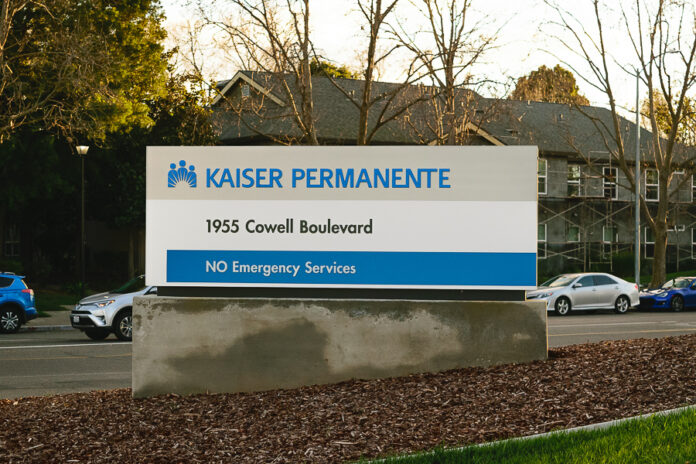Kaiser Permanente School of Medicine offers free tuition for first five classes
Kaiser Permanente School of Medicine, which will begin accepting applications in June 2019, will waive tuition for its first five classes of medical students.
Mark Schuster, the founding dean and CEO of the Kaiser Permanente School of Medicine, elaborated on how the idea came to be for Kaiser Permanente, a hospital chain, to start a medical school in Pasadena.
“This idea for Kaiser Permanente to start a medical school began well before I arrived,” Schuster said via email. “Kaiser Permanente commits itself to supporting the health of its members and communities and to advancing health and well-being in general. Establishing a medical school is a natural extension of those efforts. Many people visit Kaiser Permanente to learn about integrated care, team-based care, person-centered care, to name a few. The Kaiser Permanente School of Medicine will be able to teach medical students from the beginning about such approaches to medicine.”
Alex Ho, a fourth-year biological sciences major, plans to apply to medical school in 2021 and will be considering Kaiser Permanente School of Medicine.
“I think it’s a great opportunity because it’s an already established healthcare system and they have built up a lot of opportunities for residency and shadowing for medical education,” Ho said.
Fourth-year microbiology major Daphne Tran, also plans to apply to medical school. Tran hopes that Kaiser Permanente’s newly established school will reach out to students from different backgrounds who wish to become doctors.
“I hope that they [Kaiser Permanente] will establish more of a community from a lot of different backgrounds because I know that the pre-med community is not only diverse in age but with race, ethnicity and schools,” Tran said. “I feel like a lot of people who deserve to go to medical school are slotted out, and I feel that Kaiser Permanente is such a new school that they would recognize the needs of the pre-med community.”
Schuster noted that while medical schools share many similarities, Kaiser Permanente School of Medicine has its unique qualities.
“While every medical school is distinct, with its own particular emphases, we all share similar educational goals: to train students to serve patients and communities and advance medicine,” Schuster said. “That said, we are distinct in that we have the opportunity to build our school from the ground up. And we’ve been very lucky in that other medical schools have been incredibly supportive in providing valuable advice as we develop our school.”
Since Kaiser Permanente School of Medicine will be offering free tuition for the first five classes, Tran recognized the additional opportunity undergraduate students now have to pursue medicine.
“I think that Kaiser has recognized this problem of people wanting to go to medical school and not being able to afford it,” Tran said. “Undergraduates put themselves through all this hard work, and [with] its costs scaring them off and with this growing need in the pre-med community, Kaiser has recognized this, and I think that is pretty good that they would do something like that.”
Schuster emphasized that students will have less of a burden to choose medicine as a potential choice for their futures if they wish to pursue the career.
“It is our hope that by providing full tuition and insurance scholarships for the first five classes, our students will be free to pursue their passions in selecting their career path without the high levels of debt that so many medical school graduates have,” Schuster said. “We have seen many students change their career goals as they face the prospect of paying back hundreds of thousands of dollars of debt. If our students want to go into primary care or another field that does not pay as highly as some fields in medicine—or if they want to work in an underserved area where their incomes might be lower—we want them to be able to pursue their dreams and not be deterred by substantial student loan debt.”
Kaiser Permanente’s program will be centered on both clinical training and scholarship, allowing students to pursue their interests whether it be through laboratory experiments or clinical research.
“We will integrate basic science, clinical science, and health systems science into our small-group, case-based curriculum,” Schuster said. “The integration of the sciences into patient cases means that students will learn to apply their biomedical knowledge while considering the broader context of patients’ lives and the systems in which care is delivered.”
Through a specialized curriculum, Schuster hopes that students will be able to work with a specific focus on collaboration.
“And the small-group format means that instead of going to lectures, students will learn in a collaborative manner, mirroring the team-based clinical care settings where they will be training,” Schuster said. “Students will spend a half-day per week with a specific physician and care team in primary care during their first two years, with the addition of half days in each of pediatrics, obstetrics-gynecology, psychiatry, and surgery during their second year. We are paying particular attention to student wellness, and to equity and inclusion. We will help our students become lifelong learners so that they can continue to learn and adapt to new information and technologies years after they’ve completed medical school.”
Written by: Stella Tran — city@theaggie.org





